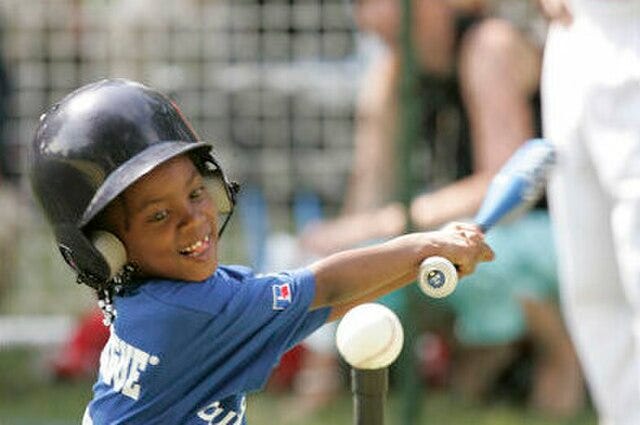Depending on where you live, the most popular youth sport might be soccer, football, hockey, basketball, even golf or tennis if your family has got it like that. For me and everyone I knew, it was baseball. I grew up in Minneapolis, which was fortunate enough to have a major league team, the Minnesota Twins. The Twins employed my neighbor across the alley, and he occasionally gave the kids on the block some of their leftover promotions. Hamm’s Beer was a sponsor, and he gave me my first sip of beer on a hot day when I was cutting the grass. It was nasty, and I never developed a taste for beer.
Of the 162 games in the regular season, about 100 were televised locally on one of the few television stations. There was no cable TV then, and I watched baseball whenever I could. Most games were played during the day. When the Twins played in the 1965 World Series, one of our teachers rolled a television into the classroom, and for an hour, we watched baseball instead of focusing on whatever the lesson might have been. The Twins won the first two games of the series, then Dodgers pitchers Sandy Koufax, Don Drysdale, and Claude Osteen shut Minnesota down. Koufax pitched two shutout games. The Los Angeles Dodgers won the series in seven games.
Having watched the Twins throughout the entire season, I was familiar with their roster. I had favorites, but I don’t remember race being a factor. Harmon Killebrew, Tony Oliva, and Bob Allison were the sluggers, and Zoilo Versalles was the Cuban American shortstop. Mudcat Grant and Jim Kaat were the pitchers I liked. The Black catcher, Earl Battey, once appeared as Santa Claus at a Christmas dinner given by the Prince Hall Masonic Lodge and the Order of the Eastern Star. I got an autograph.
Not only did the boys in my neighborhood watch baseball, but we played it. Almost everyone signed up for a Little League team at the local park, starting with Tee-Ball for the youngest kids. Tee-ball introduced kids to baseball without the fear of being hit by a pitch or the embarrassment of striking out repeatedly.

I usually signed up at McRae Park, located on 47th Street and Chicago Avenue, where we played teams from all over Minneapolis and the suburbs, such as Edina, Richfield, and St. Louis Park. I lived in South Minneapolis, and Zion Baptist Church, which I’d attended my whole life, was on the Northside. It was Little League baseball that showed me the various neighborhoods and their parks like Bryn Mawr and Lake Hiawatha. Little League baseball helped me explore Minneapolis and the surrounding area in a completely safe environment. One year, I registered with a team at Phelps Park on 39th and Chicago, a couple of blocks from where George Floyd met his demise. I always felt safe there as well.
If any experience in my lifetime made me feel like America was the melting pot I’d always heard it described as, it was playing baseball. I attended a Black church and grew up in a neighborhood where the elementary school was integrated two years before I moved in. Our home had been in a strictly redlined area, and I couldn’t have lived there a few years earlier. I didn’t know about those things at the time, but did notice the stares from some of the neighbors and the ones who wouldn’t speak.
Baseball was always different; the teams I played on were integrated, and in the first few years, everyone was welcome. The Tee Ball teams had kids of every size, dimension, and color. Like the Twins, whose lineup included players born in Cuba, like Tony Oliva and Zoilo Versalles. Harmon Killebrew was raised in Idaho, and Mudcat Grant was from Lacoochee, Florida. My Little League teams had representatives of several colors and cultures, and nobody seemed to care. Not a thought was given to the country of origin of the players or their parents, if only that were true in America today.
A few days ago, at Riverside Park in New York City, I.C.E. agents began questioning Little League players about where they and their parents were from. Their coach intervened, informed the players of their Fifth Amendment rights, and told the I.C.E. officers a few things they’d forgotten about the Constitution.
“I’ve never in my life thought this was going to happen on the Upper West Side, in New York City," said Harlem Baseball Hitting Academy founder. "That whole thing, until it happens to you, you’re not aware. And it happened to us."
The coach rescheduled future practice times but only two kids showed up because they or their parents were worried. All the team members were born in the United States and are citizens according to the Fourteenth Amendment, at least for now. A little bit of what America aspires to be died on that baseball field. A place I once would have gone without fear has become a hunting ground for I.C.E. agents.
America has really struck out.
This post originally appeared on Medium and is edited and republished with author's permission. Read more of William Spivey's work on Medium. And if you dig his words, buy the man a coffee.
